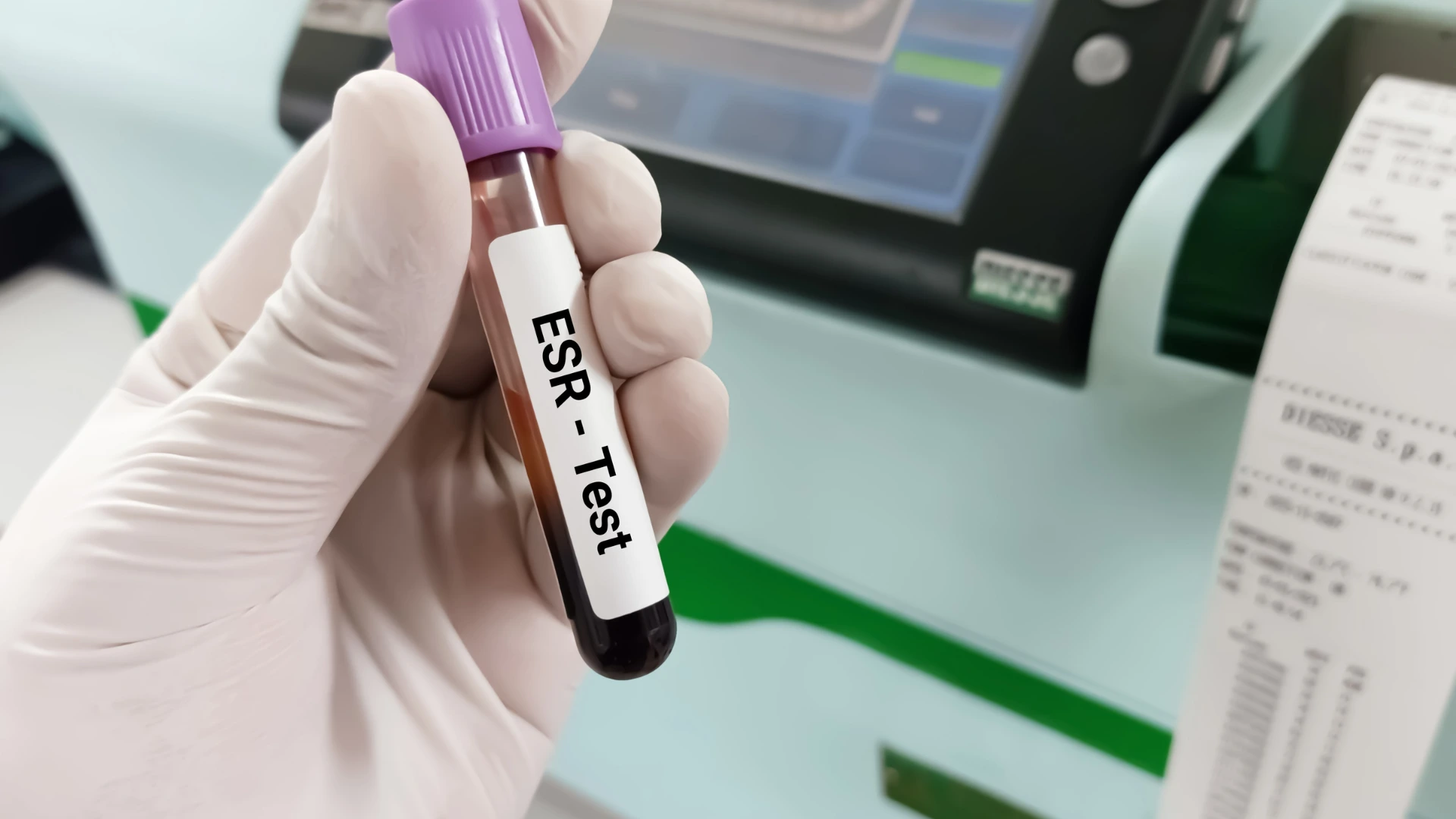
The ESR test measures how quickly red blood cells settle at the bottom of a tube. This rate can indicate the presence of inflammation in the body, helping diagnose various conditions such as infections, autoimmune diseases, and cancers.
What Is ESR? 🔍
ESR refers to the speed at which red blood cells (erythrocytes) fall in a test tube over one hour. Inflammation causes proteins in the blood to clump red cells together, making them settle faster. Higher ESR rates suggest inflammation or disease activity.
Why Is the ESR Test Important? 🤔
Doctors recommend the ESR test for:
What Can the Test Reveal? 👀
High ESR Levels ⬆️ may indicate:
Moderately Elevated ESR Levels ⬆️ can be caused by pregnancy, anemia, or age-related factors.
Normal ESR Levels 🟦 suggest no significant inflammation, but further tests may be needed for individuals with persistent symptoms.
A Crucial Tool for Health Assessment 💡
The ESR test is a simple, non-invasive, and effective way to detect inflammation and monitor disease. Early identification of inflammation can lead to prompt treatment and better health outcomes.
Take charge of your thyroid health—book your appointment today for an ESR test.
DISCLAIMER: The information presented on this page has been intentionally condensed and simplified to make it accessible and easier to understand for the general audience. Its purpose is solely to provide basic awareness and education on the topic discussed. It is important to note that this content is not exhaustive and does not replace or serve as a substitute for professional medical advice, diagnosis, or treatment. Readers are strongly advised to seek consultations with qualified healthcare professionals or specialists for accurate assessment, personalized guidance, and appropriate medical care. Relying solely on the information provided here, without professional oversight, may lead to misunderstandings or inadequate treatment.
Privacy policy
Copyright ©2025 Klinika Kajo. Designed By Vizional